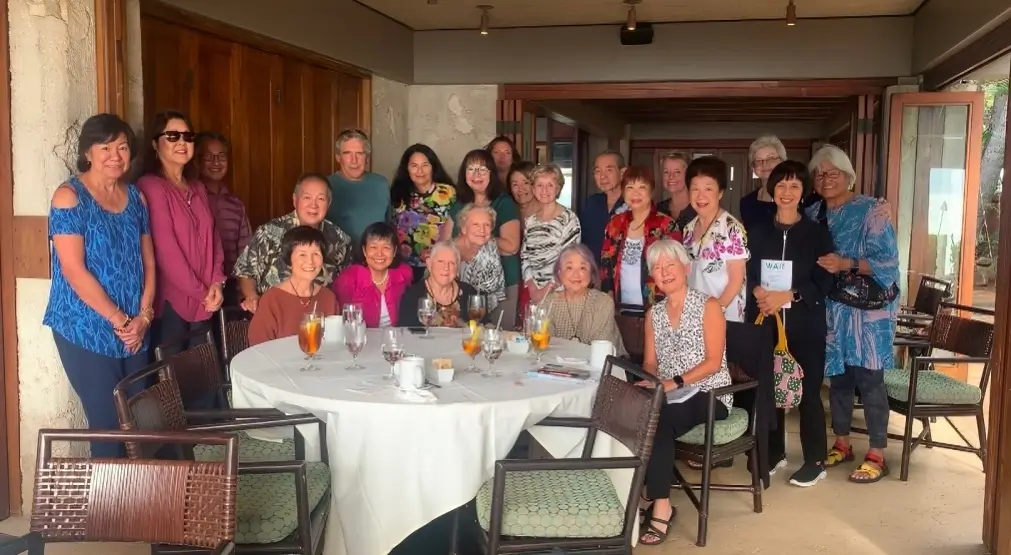At the San Diego Afternoon Tea with Amazing Friends on May 5th, the San Diego community learned valuable lessons in caregiving. Our panel of speakers included Lauren Reynolds with At Home Nursing Care, Lise Marquis, Jennifer Muskat with Home Care Assistance, and one of her care patients Frances. These ladies discussed care-giving and the various forms it takes, as well as how to protect yourself and your loved ones from fraud and embezzlement.
For example, Reynolds impressed upon us the importance of caregiving agencies being covered under union protection and properly (legally) bonded – there is absolutely no such thing as an independent caregiving contractor in California. A caregiver will always have an employer and someone to whom they report, for the safety of both the caregiver and the patient.
When selecting a caregiver, treat the process like that of a company hiring a new employee: conduct interviews with the candidate and all decision-makers in the family, test him or her out, and decide together who would be the best fit. Conduct background checks, carefully review references, and understand the agency’s requirements and policies. Even then, nothing is guaranteed. Your eyes and supervision for procedures, as well as watching the first few times the caregiver interacts with the patient will give you a more comprehensive understanding of his/her place in the role.
An easy way to spot a fraudulent caregiving agency is to do some quick math on the wages they’re offering: if a caregiver offers 24-hour care for only $180 a day, that breaks down to a wage of a little over $3 per hour. Not only is this illegal, by state and federal law, it’s not practical. You can be confident that this is a scam or otherwise fraudulent and potentially dangerous situation.
On that note, while background checks on a caregiver is always good practice, it is equally as important to keep a strict eye on the client’s finances. As Reynolds put it, “Someone could either be a great person, or a bad person who has never been caught.” Assign the person in the family with the most knowledge of finances (particularly useful is knowledge about fiduciary business) to keep track of all funds going in and out of the patient’s accounts. The agency cannot monitor this due to a conflict of interest.
Death is already an emotional and taxing process for the family and friends left behind. Do yourselves a favor and discuss the logistics long beforehand – if possible, do this with the patient before he or she potentially becomes incapable of these discussions. Find out how and what the patient wants done with his/her body after death, and understand what ceremony, memorial, or ritual should be done. Research and understand the planning process involved in these events (if a person wants to be buried, it’s a good idea to reserve a plot ahead of time), and decide amongst the decision-makers who will be responsible for what. Then, most importantly, document all of these decisions and plans in written form – so there’s no confusion or ambiguity when the time arrives.
Recommended reading – Being Mortal: Medicine and What Matters in the End by Atul Gawande.
See more photos of the San Diego tea here.










Leave A Comment
You must be logged in to post a comment.